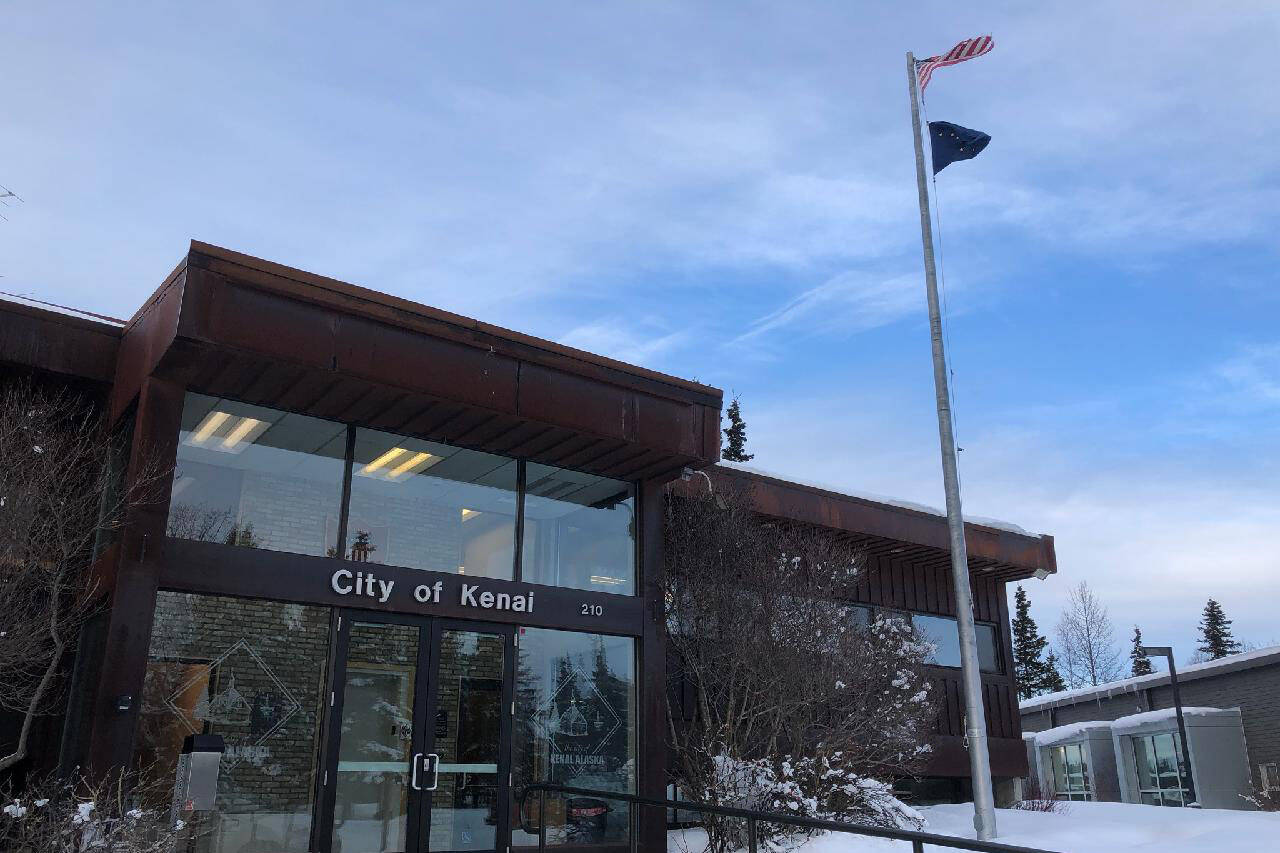Salamatof Tribe will be able to operate administrative offices in a building down Kiana Lane in Kenai after the City of Kenai’s Board of Adjustment this month upheld the approval of a conditional use permit against an appeal by nearby residents.
A conditional use permit was approved on June 26 by Kenai’s Planning and Zoning Commission saying that Salamatof Native Association could use a building at 1311 Kiana Lane as an administrative office for Salamatof Tribe — with described operations including human resources, tribal operations, accounting, enrollment and executive. The building was being used as a residence, the application says, but has previously been a church and a yoga studio.
Paula Carlyle filed an appeal on July 9, citing concerns of increased traffic on the road and a plan for expansion of the property described in the application by Salamatof Native Association — which says that “in the future” the association will seek to add a multipurpose building to the property for hosting after-school programs and teaching cultural arts.
The Board of Adjustment heard the appeal on Aug. 21. They issued their decision on Sept. 5, upholding the conditional use permit but adding additional conditions restricting the number of full-time employees that can work in the facility and its hours of operation.
During the hearing, Carlyle and several other residents of the nearby area expressed their concerns to the board. While some discussed traffic, several, including Carlyle, instead claimed that the addition of the tribe’s offices would be disruptive to their “tightknit” community.
“I appreciate Salamatof, it’s wonderful that they want to do this for their community,” Carlyle said. “We have a community too. We don’t like getting encroached upon.”
Brad Brown said that his neighborhood is “special” — “the kind of neighborhood the City of Kenai wants to be known for” — and that the tribe’s offices don’t belong there.
Jim Hall said his daughter used to bike in the area, and that the traffic might impact children playing.
“It’s not about property value,” he said. “It’s about lifestyle.”
Eric Morrison, tribal operations director for Salamatof Tribe, said that many of the claims made by residents of the area — like a claim by Carlyle that the building would be used to home people — were unfounded.
He said that some of Carlyle’s testimony was based on misunderstandings of the size and structure of Salamatof Tribe — she cited population numbers for Salamatof, Alaska, a census-designated place located between Kenai and Nikiski when discussing the size of the tribe. He said she also incorrectly conflated the operations and scale of Salamatof Tribe and Salamatof Native Association, which are connected, but distinct.
The administrative building, he said, will be used by Salmatof Tribe. He described the tribe’s operations as a social service organization that is “quite small.” He said the building would be occupied by five to seven people, with occasional visitors for enrollment into the tribe, a process that takes “at least six months.” Hours of operation would be 8 a.m. to 5 p.m.
The tribe needs its own offices, separate from the association, Morrison said, because they have different objectives. The association is in the business of making money; the tribe’s social services do not align with that goal. He said they chose to pursue the location on Kiana because it suits their needs are there are “slim” opportunities elsewhere.
“We’re only here to seek improvement for the community,” he said. “We’re only here to be a good neighbor.”
Maxwell Howland, who lives at the property in question and had arranged to sell it to the association, said he was frustrated by the appeal for keeping him from moving to Anchorage, and disagreed with the portrayal of the neighborhood by other residents. The road sees significant ATV traffic, he said, and is “really loud.”
He said the concerns were misplaced because when the structure was used as a yoga and martial arts studio by his parents it saw more traffic than the tribe’s offices would.
Danette Howland, Maxwell’s mother, said they bought the building 10 years ago and used it for yoga and martial arts for five. At its height, it could see up to 30 cars in its parking lot — there are 60 spaces in the parking lot, according to the resolution passed by the commission.
Interim Planning Director Max Best said that while the application does describe expansion plans, the permit application and approval is only for administrative offices. The application, he said, met the criteria to receive the permit.
A written decision by the board says that the applicant, Salamatof Native Association, has “met its burden” to show that their use of the property is consistent with zoning code, will not significantly impact the value of the nearby neighborhood and will not be harmful to public safety or welfare.
“The Board desires to make it clear to all involved parties that approval of the conditional use permit is only for professional office space as limited by the conditions in the permit,” the decision reads. “This approval does not, and is not intended to authorize any other non-permitted uses of the property, or make it in any way easier for any future conditional use permits for other uses on the property to be obtained.”
A full recording of the hearing can be found at “City of Kenai — Public Meetings” on YouTube.
Reach reporter Jake Dye at jacob.dye@peninsulaclarion.com.

